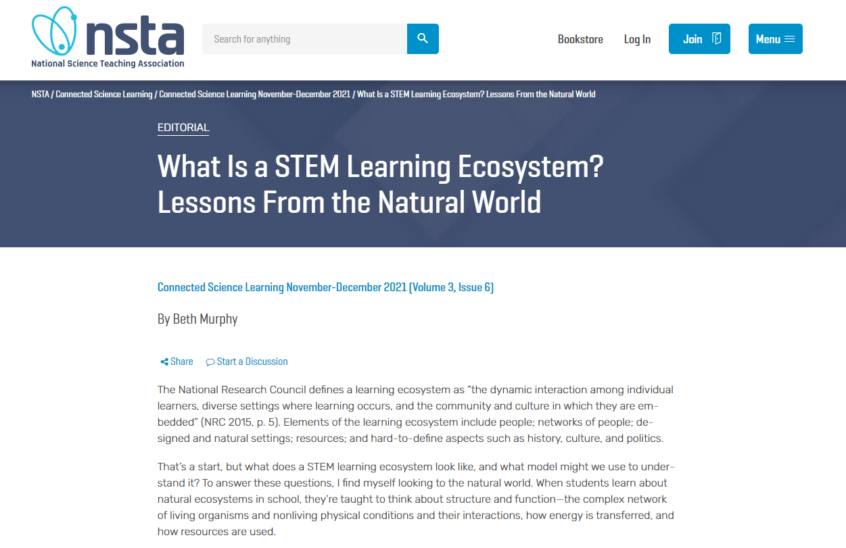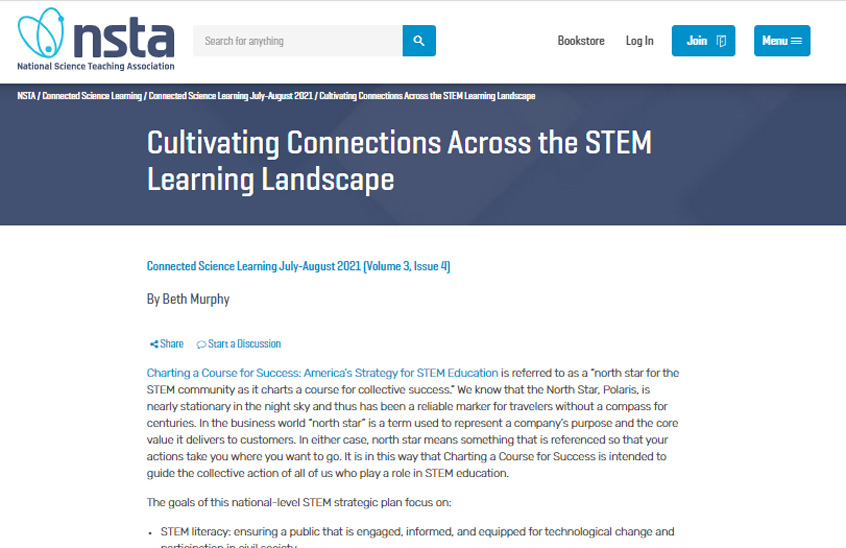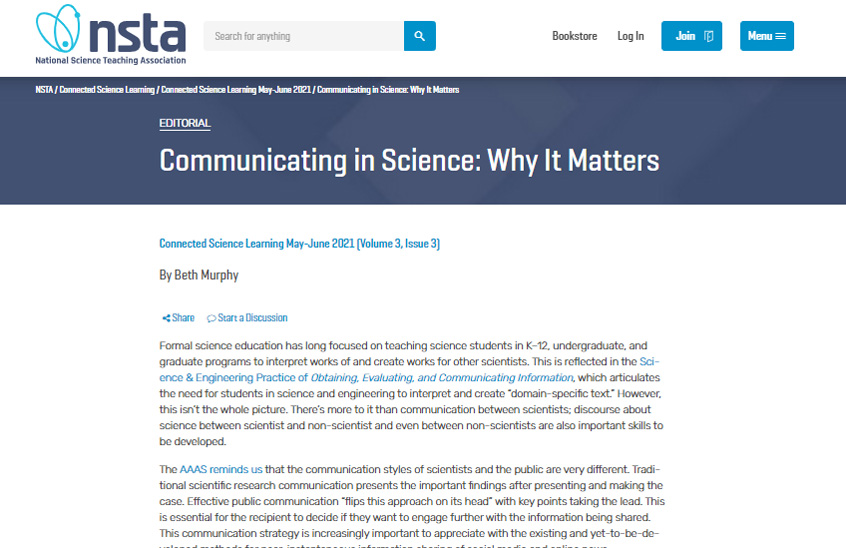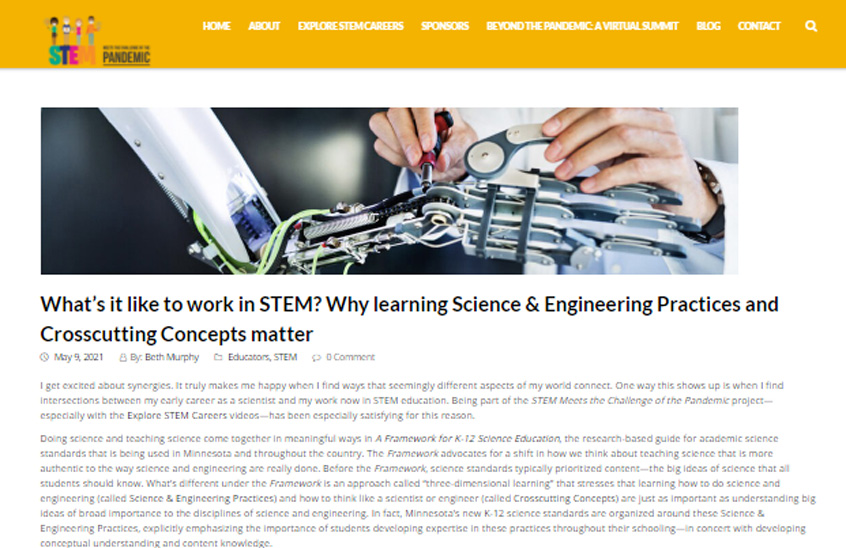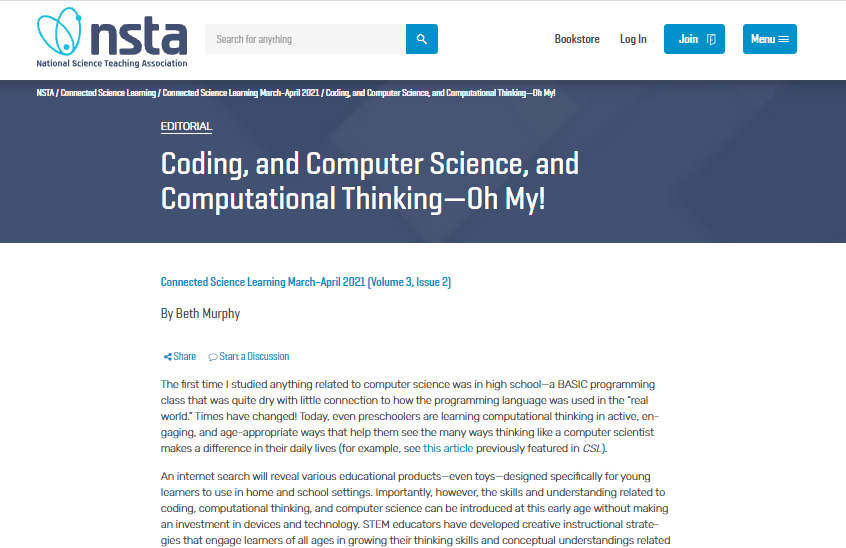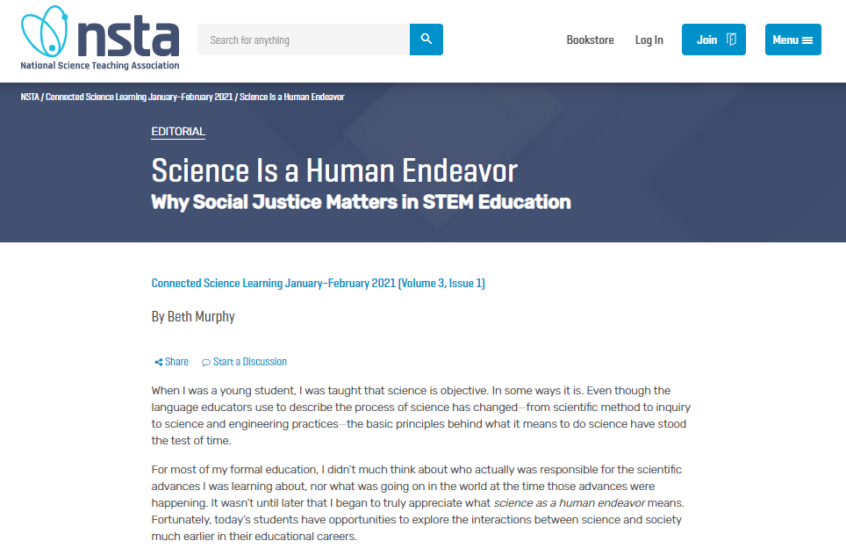The National Research Council defines a learning ecosystem as “the dynamic interaction among individual learners, diverse settings where learning occurs, and the community and culture in which they are embedded” (NRC 2015, p. 5). Elements of the learning ecosystem include people; networks of people; designed and natural settings; resources; and hard-to-define aspects such as history, culture, and politics. READ MORE
Cultivating Connections Across the STEM Learning Landscape
Charting a Course for Success: America’s Strategy for STEM Education is referred to as a “north star for the STEM community as it charts a course for collective success.” We know that the North Star, Polaris, is nearly stationary in the night sky and thus has been a reliable marker for travelers without a compass for centuries. In the business
Communicating in Science: Why It Matters
Formal science education has long focused on teaching science students in K–12, undergraduate, and graduate programs to interpret works of and create works for other scientists. This is reflected in the Science & Engineering Practice of Obtaining, Evaluating, and Communicating Information, which articulates the need for students in science and engineering to interpret and create “domain-specific text.” However, this isn’t the whole
What’s it like to work in STEM? Why learning Science & Engineering Practices and Crosscutting Concepts matter
I get excited about synergies. It truly makes me happy when I find ways that seemingly different aspects of my world connect. One way this shows up is when I find intersections between my early career as a scientist and my work now in STEM education. Being part of the STEM Meets the Challenge of the Pandemic project—especially with the Explore STEM Careers
Coding, and Computer Science, and Computational Thinking—Oh My!
The first time I studied anything related to computer science was in high school—a BASIC programming class that was quite dry with little connection to how the programming language was used in the “real world.” Times have changed! Today, even preschoolers are learning computational thinking in active, engaging, and age-appropriate ways that help them see the many ways thinking like
Science Is a Human Endeavor
Why Social Justice Matters in STEM Education When I was a young student, I was taught that science is objective. In some ways it is. Even though the language educators use to describe the process of science has changed—from scientific method to inquiry to science and engineering practices—the basic principles behind what it means to do science have stood the

